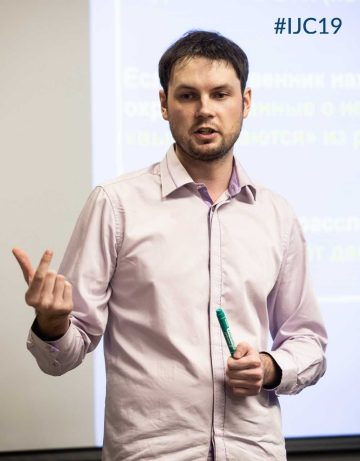A glass of drinking water for the Baltic Sea


Roman Romanovsky,
Lead Analyst,
Transparency International Russia,
Russia
Igor Sergeyev,
Head,
Regional Anti-Corruption Centre in Kaliningrad, Transparency International Russia,
Russia
By the early 2000s, the sewage treatment plants (STPs) of the Kaliningrad Region of Russia had suffered excessive wear and technical obsolescence. In some places sewage treatment was basically absent which is why domestic and industrial wastewaters were discharged directly into the sea or nearby rivers that flow into either Vistula Lagoon or Curonian Lagoon and eventually into the Baltic Sea. As a result, the pollution affected the water bodies not only in the Kaliningrad Region but also in other countries of the Baltic Sea region.
In 2006, the Government of the Kaliningrad Region and the European Union signed a Memorandum of cooperation in the implementation of a wastewater treatment project co-funded by the EU. This marked the beginning of the construction of 16 facilities but, despite the EU aid and multi-billion funding from the Russian Government, project implementation reached a dead-end. By the summer of 2019, only 11 facilities were launched. Transparency International Russia has spotted potential risks of corruption during their construction. Constant delays in putting the facilities into operation might have indicated that the authorities were interested in postponing this final step. A step when it may be revealed that the work has not been completed and the new plants could not fully function.
New treatment facilities have also become a source of constant complaints from locals and ecologists. In 2016 and 2019, Transparency International Russia investigated the work of eight such newly constructed sewage treatment plants.
Excessive bureaucracy made an objective official environmental analysis almost impossible. Even the Federal Service for Supervision of Natural Resources (Rosprirodnadzor) has to send a 3-days notice to the administration of treatment facilities prior to inspection. Public observers had little chance to get on the territory of the plants at all. This is why we took another way: we collected water samples at the outfalls of STPs and compared the results of the laboratory analyses with maximum permissible concentrations specified in the project’s design documents.
We found out that the new STPs were either ineffective or did not provide any treatment at all. The quality of treatment did not meet all eight standards on maximum permissible concentrations in all the municipalities of the Kaliningrad Region. The concentration of oil products in one of the samples exceeded the maximum permissible level 3800 times.
Not all facilities were so bad. For example, in 2016, the facilities in the city of Sovetsk, which is situated across the Neman river from Lithuania, provided exemplary treatment. The mayor of Sovetsk even said he was ready to drink a glass of water purified by the local plant. But in 2019, the new analysis showed that the concentration of nitrogen exceeded the standards 4.2 times.
We also found out that at least in four cities sewage systems were not fully connected to the treatment facilities. In two cases, this concerned half of the total volume of the wastewater.
Local ecologists estimated the daily damage sustained by the water bodies of the region at 500 million rubles based on the findings of our investigation. Meanwhile, according to Rosprirodnadzor, which is authorized to fine for untreated water discharges, in 2017 and 2018, municipalities paid only 27.6 million rubles in such fines.
An official reaction to our investigation did not come until our work was noticed by the media in other countries of the Baltic Sea Region. The prosecutor’s office of the Kaliningrad Region confirmed faults in water treatment only in three cities. As a result, either the permits for the commissioning of the treatment facilities were withdrawn or the need for modernization of the facilities was acknowledged. The latter would require development of project documents and would obviously lead to new budget expenditures.
The Ministry of Environment of the Republic of Lithuania contacted the Ministry of Natural Resources and Environment of the Russian Federation expressing a concern over the functioning of sewage treatment plants. According to the Lithuanian Ministry, Russia has not provided any information on the state of the environment for several years, despite the obligation to do so under a bilateral treaty.
Our investigation is based on a series of probes taken unofficially and only in places with free access to the public. Nevertheless, it demonstrates the scale of the problem. Transparency International Russia will continue to draw attention to this problem. After all, this is our common sea and our common planet.
Email: info@transparency.org.ru; kaliningrad@transparency.org.ru
Expert article 3039
> Back to Baltic Rim Economies 4/2021
To receive the Baltic Rim Economies review free of charge, you may register to the mailing list.
The review is published 4-6 times a year.
